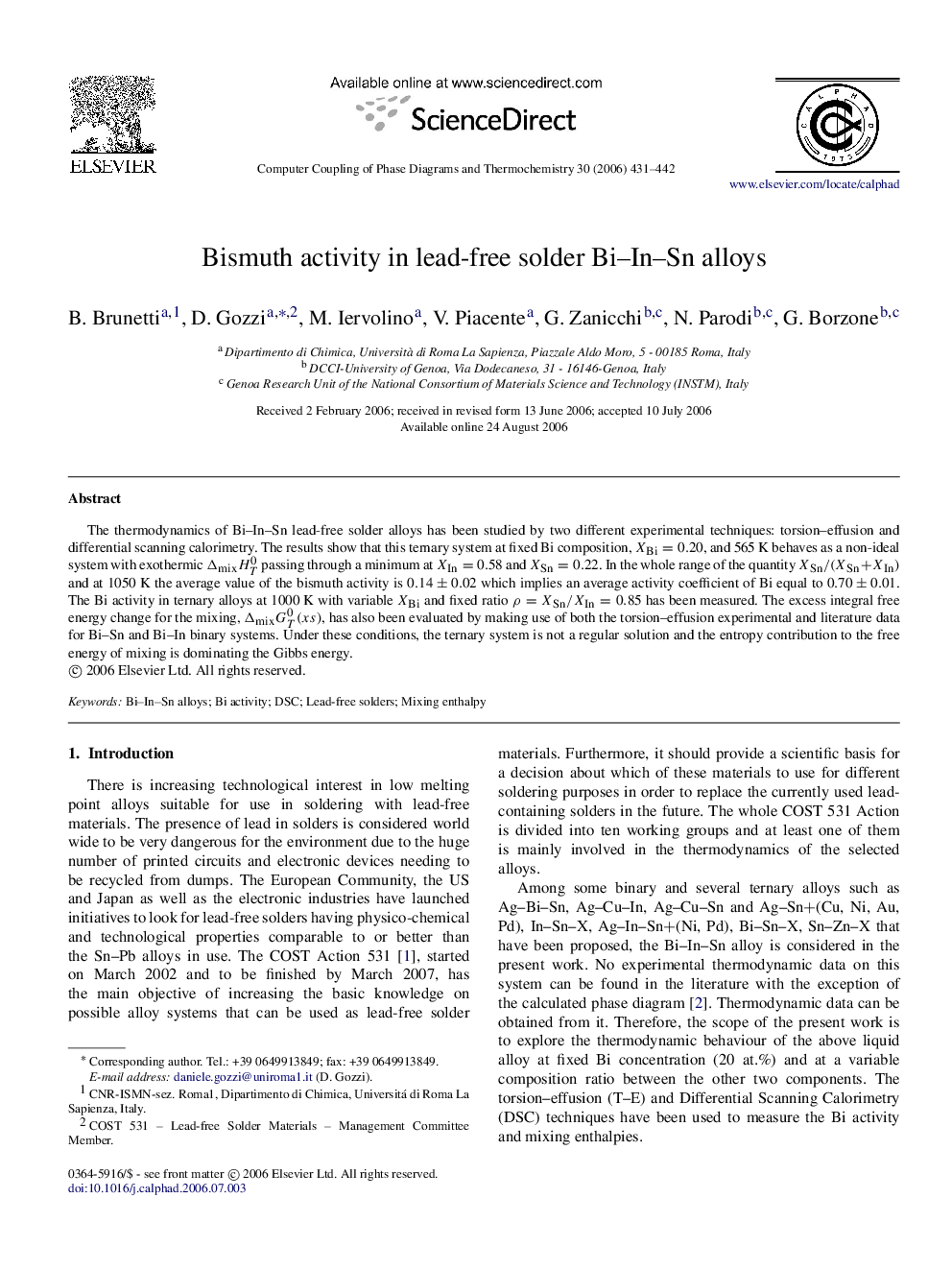| Article ID | Journal | Published Year | Pages | File Type |
|---|---|---|---|---|
| 1559475 | Calphad | 2006 | 12 Pages |
Abstract
The thermodynamics of Bi-In-Sn lead-free solder alloys has been studied by two different experimental techniques: torsion-effusion and differential scanning calorimetry. The results show that this ternary system at fixed Bi composition, XBi=0.20, and 565 K behaves as a non-ideal system with exothermic ÎmixHT0 passing through a minimum at XIn=0.58 and XSn=0.22. In the whole range of the quantity XSn/(XSn+XIn) and at 1050 K the average value of the bismuth activity is 0.14±0.02 which implies an average activity coefficient of Bi equal to 0.70±0.01. The Bi activity in ternary alloys at 1000 K with variable XBi and fixed ratio Ï=XSn/XIn=0.85 has been measured. The excess integral free energy change for the mixing, ÎmixGT0(xs), has also been evaluated by making use of both the torsion-effusion experimental and literature data for Bi-Sn and Bi-In binary systems. Under these conditions, the ternary system is not a regular solution and the entropy contribution to the free energy of mixing is dominating the Gibbs energy.
Keywords
Related Topics
Physical Sciences and Engineering
Materials Science
Materials Science (General)
Authors
B. Brunetti, D. Gozzi, M. Iervolino, V. Piacente, G. Zanicchi, N. Parodi, G. Borzone,
